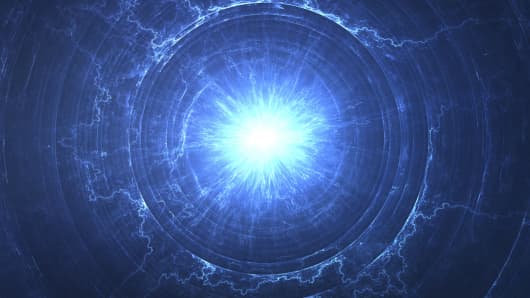Paul Singer: This threat is 'head-and-shoulders' above all others
CNBC.com
Billionaire hedge fund manager Paul Singer has issued an
unusual warning for investors, calling the threat of a widespread
blackout from an electromagnetic surge the "most significant danger" in the world.
Called an "electromagnetic pulse" or EMP, the events can occur naturally from solar storms or artificially from a high-altitude explosion of nuclear weapons.
"While these pages are typically chock full of scary or depressing scenarios, there is one risk that is head-and-shoulders above all the rest in terms of the scope of potential damage adjusted for the likelihood of occurrence," Singer wrote to clients of his $24.8 billion Elliott Management on Monday in a standard investment update letter. "Even horrendous nuclear war, except in its most extreme form, can [be] a relatively localized issue, and the threat from asteroids can (possibly) be mitigated."
Called an "electromagnetic pulse" or EMP, the events can occur naturally from solar storms or artificially from a high-altitude explosion of nuclear weapons.
"While these pages are typically chock full of scary or depressing scenarios, there is one risk that is head-and-shoulders above all the rest in terms of the scope of potential damage adjusted for the likelihood of occurrence," Singer wrote to clients of his $24.8 billion Elliott Management on Monday in a standard investment update letter. "Even horrendous nuclear war, except in its most extreme form, can [be] a relatively localized issue, and the threat from asteroids can (possibly) be mitigated."
"(A natural EMP event) today would cause a massive disruption to the electric grid, possibly shutting it down entirely for months or longer, with unimaginable consequences," Singer wrote. "Only two years ago, the sun let loose with a Carrington-magnitude burst, but the position of the earth at the time prevented the burst from hitting it. The chances of additional events of such magnitude may be far greater than most people think."
Carrington refers to a solar storm in 1859 that caused telegraph systems to fail around the world.
Singer warned that a man-made EMP attack would be even worse.
"It would not cause any blast or radiation damage, but such an attack would have consequences even more catastrophic than a severe solar storm. It could not only bring down the grid, but also lay down a very intense, very fast pulse across the continent, damaging or destroying electronic switches, devices, computers and transformers across America," the letter said.
A spokesman for Elliott declined further comment.
The letter called on leaders to protect the power grid and essential electronic devices. He also said that spare parts should be stockpiled and that government and other groups should prepare an emergency response plan.
"Why are we writing about this topic? Because in any analysis of societal risk, EMP stands all by itself. Congressional committees are studying this problem, and federal legislation is laboriously working its way through the process," the letter said. "We think that raising people's consciousness about what should be a bipartisan push to make the country (and the world) safer from this kind of event is a good thing to do."
Lawmakers are aware of the threat.
"The consequences of such an attack could be catastrophic; all electronics, power systems, and information systems could be shut down," Rep. Scott Perry said in prepared remarks during an EMP hearing in May held by the U.S. House Committee on Homeland Security. "This could then cascade into interdependent infrastructures such as water, gas, and telecommunications. While we understand this is an extreme case, we must always be prepared in case a rogue state decides to utilize this technology."
—By CNBC's Lawrence Delevingne
"The consequences of such an attack could be catastrophic; all electronics, power systems, and information systems could be shut down," Rep. Scott Perry said in prepared remarks during an EMP hearing in May held by the U.S. House Committee on Homeland Security. "This could then cascade into interdependent infrastructures such as water, gas, and telecommunications. While we understand this is an extreme case, we must always be prepared in case a rogue state decides to utilize this technology."
—By CNBC's Lawrence Delevingne




No comments:
Post a Comment